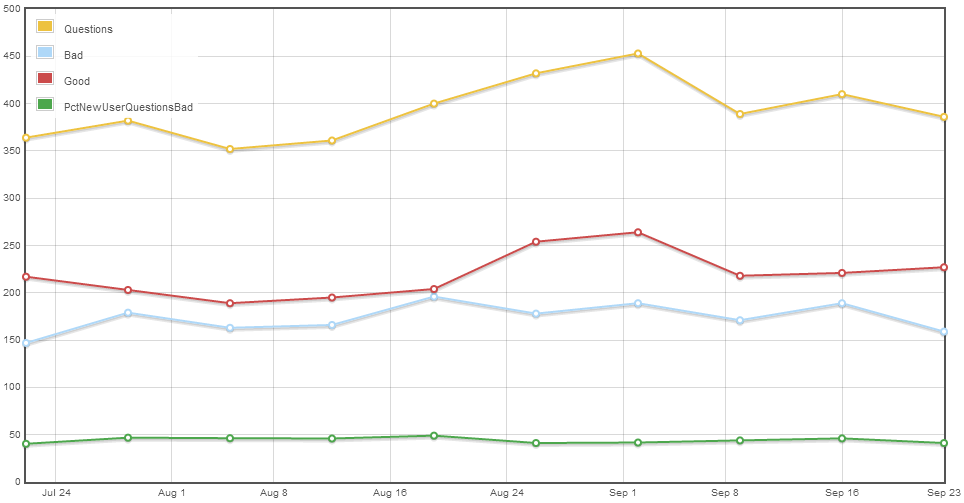Since the idea seems to have been well-received, I've turned this feature on. Feel free to log out and verify that it works...
So how will we know if this has had any positive effects? Here's some baseline data on questions from new users:
week Questions Bad Good PctNewUserQuestionsBad
------------- --------- --- ---- ----------------------
2013-07-22 364 147 217 40.38
2013-07-29 382 179 203 46.86
2013-08-05 352 163 189 46.31
2013-08-12 361 166 195 45.98
2013-08-19 400 196 204 49
2013-08-26 432 178 254 41.2
2013-09-02 453 189 264 41.72
2013-09-09 389 171 218 43.96
2013-09-16 410 189 221 46.1
2013-09-23 386 159 227 41.19

...Where again, a "bad" question is one that was closed, deleted (by someone other than the author) or down-voted below 0. If we can get the % to drop significantly without seriously hurting the number of good questions, we'll call this a success.
Don't let me forget to come back in a couple weeks and run this query again...
###Addendum: bad questions broken down by author reputation
This deserves a closer look at some point in the future, but I want to drop a note in here to address Iain's concern that any approach targeting only new users - that is, folks who've yet to earn at least 10 reputation points OR a network association bonus - is missing the mark.
Using the same criteria for "bad" as above, I divided all of the bad questions asked during the past 90 days into buckets according to the reputation of the author at the time they were asked (questions are bucketed by rounding author rep down to the nearest multiple of 100):
Reputation rounded down to the nearest 100 BadQuestions
------------------------------------------ ------------
0 2630
100 926
200 70
300 45
400 26
500 11
600 15
700 19
800 6
900 5
1000 9
1100 10
1200 2
1300 3
1400 2
1500 3
1800 1
1900 2
2200 1
2400 5
2500 5
2800 1
3100 1
3500 1
4000 1
4100 1
4300 1
31800 1
More interestingly, only 415 "bad" questions were asked during this time period by folks whose only reputation came from the association bonus, compared to 2630 questions from folks who AT THE TIME THEY POSTED THE QUESTION would've been classified as new users.
Whether or not this is particular change is a useful strategy, I'm at least confident that we are targeting the right group of users.
